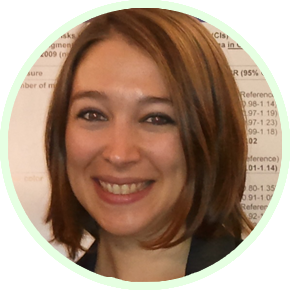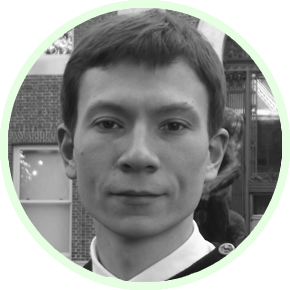During my Marie Curie project, my host country was… the United States
Pierre Jehel, Marina Kvaskoff (both from France) and Markus Valtiner (from Austria) have benefited from an International Outgoing Fellowship (IOF). They worked or are currently working on their Marie Curie project in the United States. Marie Curie Fellows interested in having such an experience should read their stories to make their American dream a reality!


The United States (US), is a country of prestige, well-known for its pioneering methodologies
Kvaskoff’s project aims to investigate the potential genetic overlap between endometriosis and melanoma in two American cohorts and in a French cohort of women. She has always been interested in gaining valuable experience in the US “because so many pioneering methodologies and original findings come from there. Also, there is a general optimistic spirit in the US that always appealed to me”. She also considers herself lucky that her mentor is one of the world’s leaders in epidemiological research on endometriosis and has joined her research group in Boston. Meanwhile, Valtiner worked in Santa Barbara, unravelling the complexity of the macroscopic world based on molecular-level details. – for example understanding the scaling of single molecular interactions towards integral interactions. These are mediated through a large number of simultaneously interacting molecular bonds. He believes the “best place for supporting this project was in the US”. Jehel is currently working in New York City focusing on the quantification of uncertainties in the numerical simulation of how buildings behave in the event of an earthquake. He considers the US an attractive destination because “Universities ranked among the best in the world are in the US”. He also wanted to discover a new culture “I was willing to learn more about the American people: their culture, their way of life, and how they interact with the rest of the world. We hear so much about America in Europe so I wanted to get my own idea of it”.
Do you want to see the US and its research for yourself? Apply for a J-1 visa!
Jehel pointed out that “Columbia University administration was well aware of the Marie Curie Actions and everything went very smoothly”. He had to provide a copy of his passport, a health acknowledgement form, the Marie Curie fellowship grant agreement, a Curriculum Vitae and an application for a DS-2019 form to obtain a J-1 visa. Kvaskoff also had to obtain a J-2 visa and a work permit for her husband. She was also asked to provide a translation for each diploma. But having acquired all the required documents, “everything was pretty straightforward”.
Subscribe to a medical insurance policy that covers 100% of your medical bills!
Registering to medical insurance is key when you decide to work in the US, according to Kvaskoff; she says “You cannot work in the US without providing proof that you have medical insurance”. She encountered some difficulties when she initially applied for international insurance “My husband and I had a bad experience with a cheap international insurance policy. We once ended up with a total invoice of $15 000, and the company refused to reimburse our costs because of a ‘pre-existing condition’ clause. Dealing with this has been very long and terrible”. That’s why she strongly recommends that all Fellows take out medical insurance that covers 100% of the medical bills, and to check carefully “the rate of co-pay that is deductible and the maximum amount you may be out-of-pocket!”.
Demonstrate that you can cover all your expenses and your family’s expenses!
Jehel explained that the American administration asked him to demonstrate that he could cover expenses of up to $2 400 per month (in 2012) during his stay. He added that if a Fellow decides to settle with his/her wife/husband and children, $800 should be added to this amount for the spouse and for each child.
Accommodation can become a tricky issue, depending on the city chosen
Jehel stressed the difficulty of finding accommodation in New York City “In NYC, the apartment rental market is very tough and very expensive. When moving to NYC, you have to prepare a rental application with as many details as possible about your income, the purpose of your stay in the US, and your status in the US as a foreigner, etc.” He added nevertheless that “many useful tips can be found online to get prepared”. Kvaskoff’s experience was totally different, as she found her apartment in Boston without too much difficulty “We found an apartment very quickly and easily, in just four days and with no deposit requested – these things are much easier in Boston. ”
Efficient processes at work and involvement
Kvaskoff highlighted the efficiency of the way the work is organised in her institution, “Each procedure is constantly improving. I’m not sure if this can be considered as a difference with Europe, as I was coming from a small team in France. In any case, here, there is a particular procedure for everything to ensure efficiency and quality of each step of the research process”. She also stressed the reliability of the quality system “Each research idea, proposal, or finding is thoroughly discussed with the whole lab, and internal quality checks or reviews are performed routinely and before any finding can be published or any grant application can be submitted”. Jehel was amazed by the involvement of students from an early level “From their first year, students can volunteer for research work under the supervision of a Professor”.
Enjoy working in a dynamic atmosphere!
Our three Fellows enjoyed working in the US for different reasons. Kvaskoff particularly emphasised the opportunity to train in various fields related to her research “There is always someone in the lab with different expertise who can teach you something new. Also, in my institution, most investigators are teaching (at Harvard School of Public Health), and I was able to audit some classes and learn and practise new techniques during the first year of my fellowship”. Valtiner liked above all working in an “egalitarian work atmosphere”. Jehel appreciated having access to any publication, especially in the well-known Butler library of the Colombia University. “Catching up on a deadline in the inspiring Butler library is just much more relaxing and efficient than anywhere else,” he added.
Interesting places to work in the US
If you are applying for a Fellowship in the US, our Fellows recommend several interesting places to work. According to Kvaskoff, “There is a very high concentration of research institutes and hospitals, but also of technology companies and universities mainly spread across Boston and Cambridge (most affiliated with Harvard or MIT, Boston University…), and some other locations in Massachusetts such as Waltham (Brandeis University), Worcester and Amherst (UMass). The research environment is very dynamic, and the proximity to certainly facilitates collaboration between groups”. Jehel recommends the place where he is currently working “I definitely enjoy working in an institution like Columbia University!”.
Advice for Fellows who would like to work on a research project in the US
Kvaskoff, Jehel and Valtiner all agree that working on a research project in the US is a fruitful experience. Kvaskoff recommends that Fellows “take advantage of everything that the American research culture has to offer. In particular, it is very easy here to find access to professional development workshops and seminars. At my institutions (Brigham and Women’s Hospital, and Harvard Medical School), a multitude of seminars are being offered to employees free of charge, and career development is strongly encouraged”. Jehel added that it is important to believe in your ideas because “nobody will try to stop you nor do it for you”, whereas Valtiner’s last point is simply “Go for it!”.